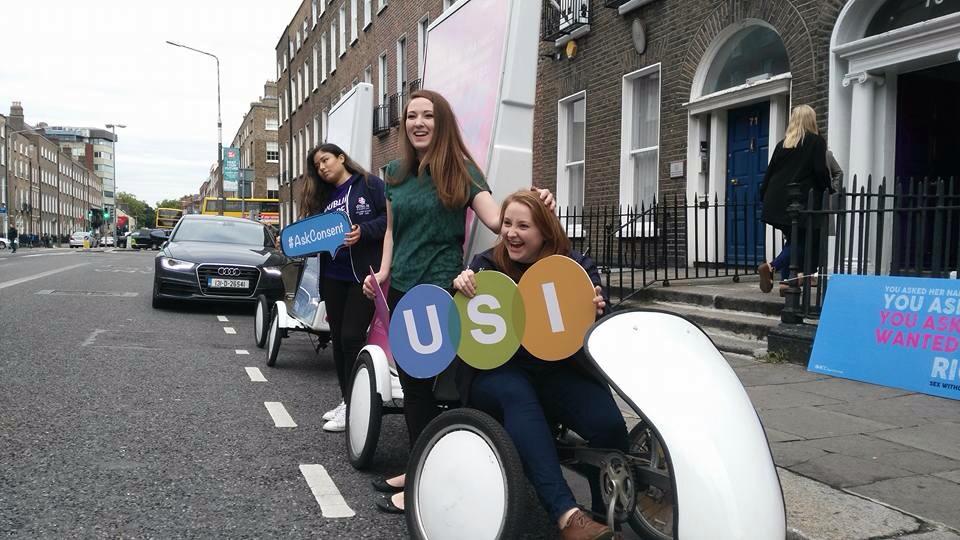
30,000 Say Something cards will be delivered to students’ unions across the country in the coming weeks.
Speaking about the new card, Kevin Donoghue, President of USI, said: “We hope this card will be an aid to students who find themselves in the position where they’re victims of violence and don’t know what to do next. We want to reverse the culture of victim blaming in Ireland and instead of blaming the victims, we want to help, support and empower them.”
Annie Hoey, Deputy President of USI, said: “USI are delighted to launch the Say Something cards to raise awareness of the supports available to students who experience violence.” She added that: “USI also trains students’ unions around these issues to equip them on how to best support students. The cards will have all the information a student needs after they’ve been sexually or physically assaulted and we hope to see an increase in the number of reported incidents. According to the DRCC only 1 in 10 rapes are reported. There are a lot of different reasons for this but we hope these cards will give students the information and support they need.”
The card was developed from research funded by the National Office for the Prevention of Domestic, Sexual and Gender-based Violence (Cosc) and the Department of Justice and Equality, which examined students’ experiences of sexual violence and harassment while in college and found that 16% of students had experienced an unwanted sexual experience.
The survey was completed by 2,590 Irish students and 162 international students and found that 11% of the women who responded had been subject to unwanted sexual contact, while 5% of women who responded had been raped. 3% reported that they had been the victims of attempted rape.
According to USI, 29% of victims did not report the incident because they were ashamed or embarrassed, 22% did not report it because they were afraid that they would be blamed for what happened, and 21% because they did not want their parents or family to find out.






